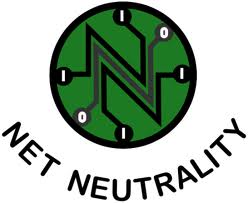Netflix and Comcast in Bandwidth Brawl

We recently reported that Netflix alone now forms 20 percent of U.S. peak downstream internet traffic. Though Netflix is the biggest SUV on the highway, the burgeoning demand for video streaming isn't confined to Netflix.
For Comcast and other ISPs, that's a problem. They're faced with the need to expand their networks to accommodate all this new traffic. But when the growth comes outside their own VOD operations, they don't benefit. For that reason they're threatening to put up a tollbooth on the dear old info superhighway: Either Netflix pays a toll or its zeroes and ones will be blocked. Comcast has had a bandwidth cap in place since 2008, spelling trouble for various devices, but the idea of specifically discriminating against certain bandwidth hogs is new.
That in turn is a problem for Netflix and for Level 3, the company that provides the backbone of Netflix streaming service. Level 3 just signed a three-year contract to continue its relationship with Netflix. Now Level 3 is looking askance at Comcast's tollboth.
Comcast is running a risk of its own by pursuing this strategy. Its merger with NBC Universal is getting closer scrutiny from the FCC.
The dispute is landing in the lap of the FCC, whose new management have a previously stated interest in exploring net neutrality rules.
It looks as if the next act in this saga will unfold at an FCC meeting on December 21 when the agency will discuss an "open internet order adopting basic basic rules of the road to preserve the open Internet as a platform for innovation, investment, competition, and free expression. These rules would protect consumers' and innovators' right to know basic information about broadband service, right to send and receive lawful Internet traffic, and right to a level playing field, while providing broadband Internet access providers with the flexibility to reasonably manage their networks." See FCC press release (PDF).
If the FCC does decide to tackle net neutrality in a proactive manner, it may face an uphill battle against companies, courts, and Congress. Some question whether the FCC has the jurisdiction to defend net neutrality. To be continued.
- Log in or register to post comments





























































